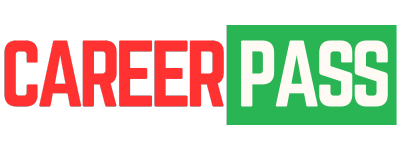Most Common Job Interview Questions – and How to Answer Them

Introduction: Why Preparing for Job Interviews Matters
Interviews for job openings aren’t just an opportunity to talk about your skills It’s the chance to show you’re the perfect candidate to be hired. If you’re a recent college graduate or an experienced professional, preparing makes those who are “maybes” from the “you’re hired.”
Learning the most commonly asked interview questions and knowing how to respond will boost your confidence and allow you to make a lasting impression on anyone you meet with. If you are able to practice and practice, you’ll be more comfortable with how your answers will sound, transforming anxiety into confidence.
Understanding the Interview Process
What Recruiters Look for Beyond Your Resume
The recruiters aren’t just looking at your skills. They’re also evaluating your attitudes, communication abilities as well as your cultural compatibility and solving abilities. Although your CV might be amazing, a bad interview could hinder your chances of getting the job and that’s why it’s important to prepare.
Behavior Behavioral. Technical Questions – Explained
Interview questions typically can be classified into two types:
- Questions about your behavior that look at your past experience (“Tell me about the time you commanded the team …”).
- Questions about technical aspects that test the specific skills you need to be able to use in your job. (“How do you identify an error in coding ?”).
Understanding the difference will help you to tailor your responses accordingly.
Top 20 Most Common Job Interview Questions – and How to Answer Them
Let’s look at some of the top questions asked and the best way to answer efficiently.
1. Tell Me About Yourself
Make it clear. Concentrate on your story of career including your experiences, your background and what brought you to this position. Example:
“I’m an experienced professional in marketing with five years experience working in the field of digital strategy as well as creating content. I’m a big fan of data-driven marketing and am excited to assist your team in expanding its reach online.”
2. What Are Your Strengths and Weaknesses?
Be truthful, but also strategically. You should highlight strengths that are relevant to your job as well as a weak point you’re working to improve.
“My strength lies in my flexibility. I thrive in environments that are dynamic. One thing I’ve been working on is delegation of tasks. I’m trying to learn that I can trust my colleagues members more.”
3. Why Do You Want to Work Here?
Make sure you’ve completed the necessary research.
“I appreciate your firm’s dedication to employee development and innovation. I see a clear connection between my expertise and your goals.”
4. Where Do You See Yourself in 5 Years?
Be ambitious, but remain realistic.
“In five years, I see myself growing into a leadership position where I can mentor others and contribute to strategic decisions.”
5. Why Should We Hire You?
Link your talents directly to the needs of the job.
“Because I bring proven results — I’ve led projects that increased customer engagement by 30%, and I’m confident I can do the same here.”
6. Tell Me About a Challenge You’ve Faced and How You Overcame It
Utilize the method STAR (Situation of Task Action and Result).
“In my previous job I was faced with a strict deadline. I revamped work flow, delegated work effectively, and finished the project two days earlier.”
7. Describe Your Work Style
Be aware of how you adapt and work together.
“I’m organised and pro-active. I place a high value on communication and ensure that I’m clear prior to completing an assignment.”
8. How Do You Handle Pressure or Stress?
Demonstrate emotional intelligence.
“I manage stress by keeping myself organized and dividing tasks into small steps. I also find the time to recharge so I keep my focus.”
9. What Are Your Salary Expectations?
Be thorough and flexible.
“Based on my experience and industry standards, I’m looking for a salary in the range of $60,000-$70,000, but I’m open to discussion.”
10. Do You Have Any Questions for Us?
Always be sure to say yes!
Ask questions that demonstrate an interest that is genuine:
“What qualities make someone successful in this role?”
“How do you measure performance for this position?”
How to Structure Perfect Answers Using the STAR Method
What Is the STAR Method?
The STAR method has been proven to be a successful method to address the questions of a behavioral interview clearly:
- S – Situation: Define the context
- T Task: Define your responsibilities
- A – Action: What you did
- “R – Results: Positive outcome
Sample STAR Answer
“When managing a launch of a new product (Situation) I was charged with enhancing collaboration between teams (Task). I set up weekly stand-ups and sharing dashboards (Action) that reduced the amount of miscommunication and increased delivery time by 25 percent (Result).”
Common Mistakes Candidates Make During Interviews
Overusing Buzzwords or Giving Generic Answers
Beware of phrases such as “I’m a team player” without any examples. Make sure you are specific.
Failing to Research the Company
Studying the mission of the company, products and values shows an interest that is genuine.
Poor Body Language and Lack of Confidence
Smile, keep eye contact and sit straight. These non-verbal signals can impact your outcomes just as your responses.
Pro Tips to Impress Interviewers
- Make use of numbers to determine the extent of your the accomplishments.
- Create custom answers for each task.
- Always conclude with enthusiasmThank the interviewer with sincere gratitude.
How to Prepare for Virtual or Online Interviews
Technical Setup and Environment Tips
Make sure you are aware of your lighting, internet, and background before you start your interview. Choose a quiet, clean space.
How to Maintain Engagement on Camera
Directly look into the camera Smile naturally, and use hand gestures in a controlled manner to look at ease.
FAQs About Job Interviews
What Should I Bring to an Interview?
Take a copy of your resume with you, a notepad an eraser, and any required documents.
How Early Should I Arrive?
Be there 15 minutes earlier and it will show dedication and punctuality.
How Long Should My Answers Be?
Aim for 1-2 minutes per question, depending on complexity.
What Should I Wear to an Interview?
Dress up a notch above the normal attire for the workplace professional, but at ease.
How Soon Should I Send a Thank-You Email?
Send it in the first within 24 days after the meeting, thanking you and expressing your interest.
Conclusive: Confidence comes From Preparation
Success in an interview isn’t just about luck, it’s all about pre-planning. Being aware of the most commonly asked interview questions and knowing how to respond provides you with an indisputable advantage. Do it over and over again, improve your answers, and remember that every interview is an opportunity to learn. opportunity.
For more tips on interviewing and techniques, check out Indeed’s Guide to Careers.


